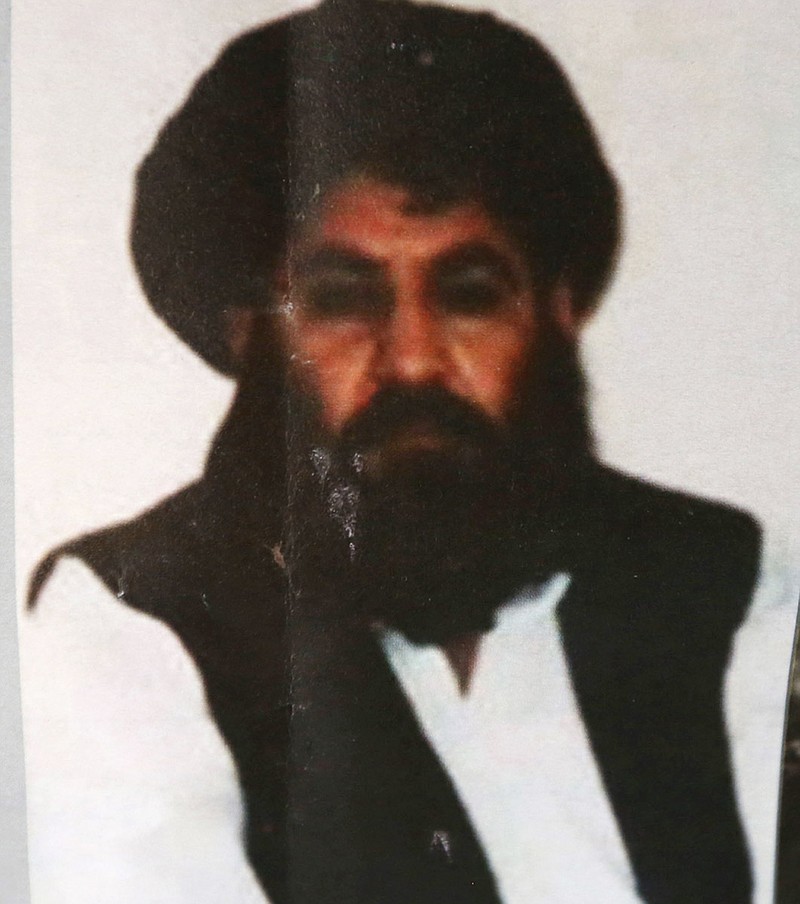ISLAMABAD (AP) - Mullah Mohammed Akhtar Mansour's brief rule, which ended Friday with his death in a drone strike, was marked by mistrust and strife.
Since his takeover of the movement following the announcement last year of founder Mullah Mohammed Omar's death, Mansour has battled other Taliban commanders. He eventually enlisted the powerful semi-independent faction known as the Haqqani network to cajole important commanders back into the fold and promised positions on the leadership council to entice Omar's family to his side.
So divisive was Mansour's rise to the leadership of the Taliban that at the meeting announcing his ascendency, several of the movement's top commanders stormed out, according to one Taliban official familiar with the proceedings, but who didn't want to be identified because of orders not to speak independently to the media.
Tayyab Aga, a close ally of Omar's and a former peace negotiator on behalf of the Taliban, refused to swear allegiance to Mansour. In a statement following the announcement that Omar had died two years earlier, Aga accused Mansour of hiding the founder's death in order to secure his power at the helm.
Meanwhile Mansour set about trying to buttress his position, appointing as his vice-president, Sirajuddin Haqqani, the head of the Haqqani network, which is considered by both Afghanistan and the United States as the strength behind the Taliban. Bringing in the Haqqanis added both manpower and military sophistication to the Taliban operations.
Mansour also gave Mullah Omar's son and brother positions on the leadership council.
It took several months and bloody battles inside Afghanistan between warring Taliban factions before a semblance of unity was brought to the movement. Under the guiding hand of Haqqani, several key commanders agreed to support Mansour, but some also made their support conditional - demanding Mansour reveal the circumstances around Mullah Omar's death.
Since the 2001 ouster of Mullah Omar and the Taliban by a U.S.-led military coalition, the Taliban founder was seen only by a handful of followers, including Mansour. This recently caused some within the movement, including Aga, to speculate that Mansour had intentionally concealed Mullah Omar's death from the movement. Mansour was openly accused by several within the Taliban of manufacturing recordings by Omar and issuing orders using his name.
When the Taliban ruled Afghanistan between 1996 and 2001, Mansour held several positions in the government.
In 1999 when the United Nations imposed wide-ranging sanctions on the movement, Mansour was both Aviation Minister, trying to keep the national airline operating without spare parts, and military commander in the Taliban stronghold of Kandahar.
Among the Taliban leaders at the time Mansour was considered among those closest to Mullah Omar and like the Taliban founder, Mansour rarely travelled to Kabul - instead running his aviation ministry from the southern city of Kandahar.
Mansour was a member of Afghanistan's powerful Ishaqzai tribe in Kandahar, the spiritual headquarters of the Taliban. His tribal affiliation speaks to his significance as an ethnic Pashtun, whose members comprise the backbone of the Taliban.
Critics of Mansour also accused him of being close to Pakistan's intelligence agency, known by its acronym ISI.
